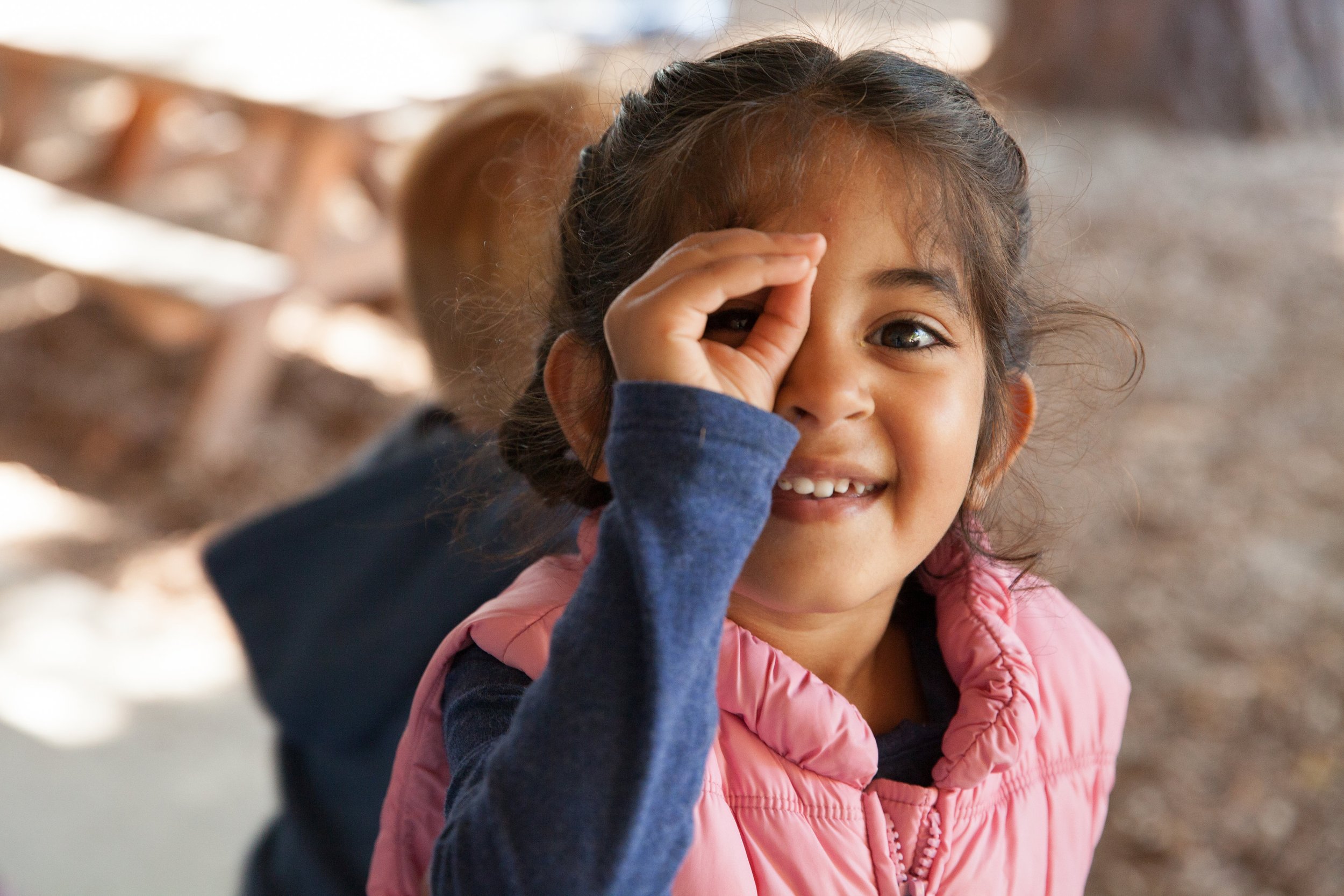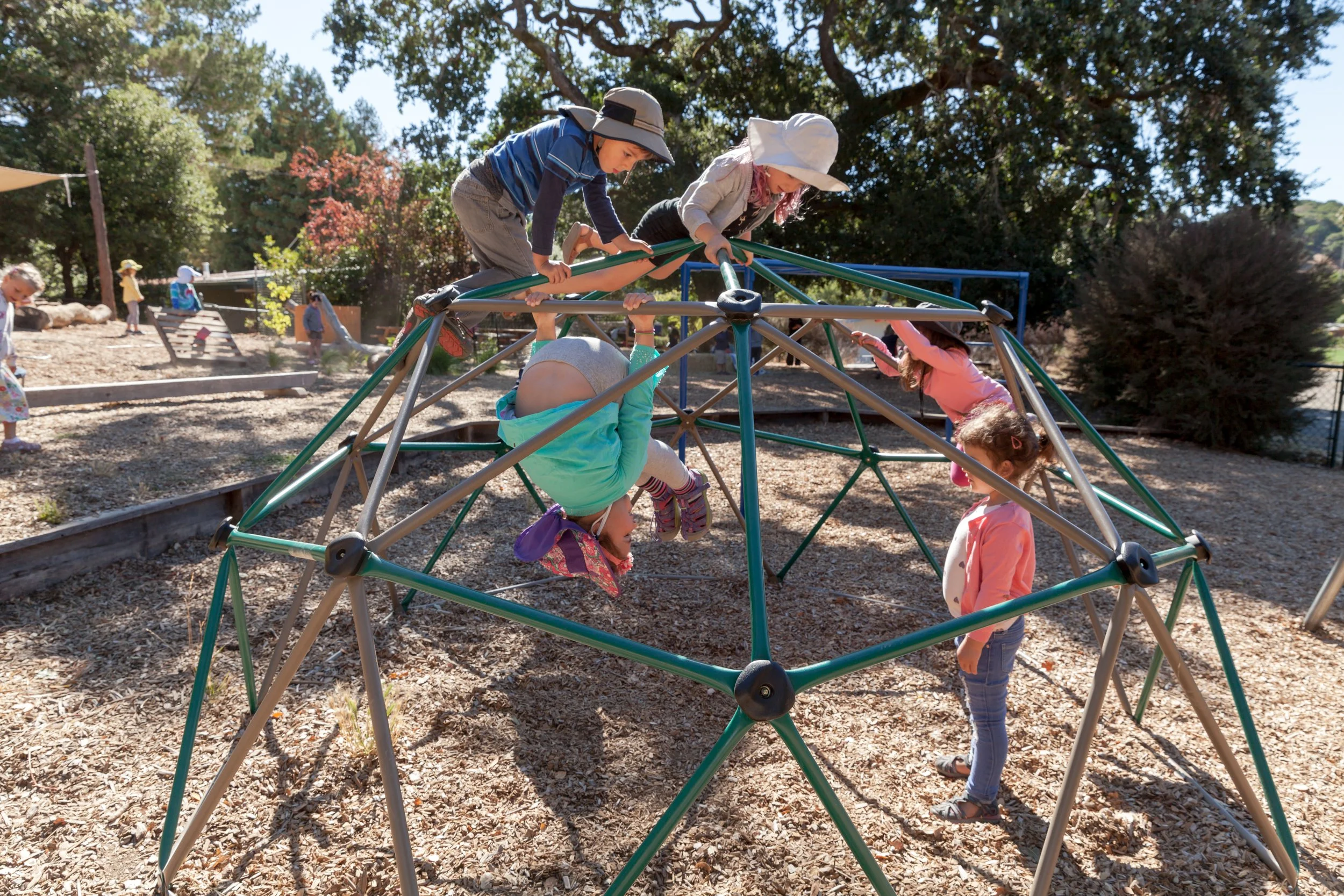Learning to Learn: Preparing Preschoolers for Elementary School
Nurturing pre-academic skills during preschool and kindergarten leads to confident and curious learners in elementary school and beyond.
From the moment they’re born, children are learning. Through imitation, imagination, exploration, and play, they steadily build an understanding of the world around them and their place within it.
At Marin Waldorf School, our preschool and kindergarten programs carefully nurture the young child’s natural curiosity and capacity for learning. Through ample opportunity for free, imaginative play combined with guided activities that encourage each child’s growing intellectual, social, emotional, and physical skills, we promote confidence and competence in our youngest students as they prepare for elementary school.
Pre-Academic Skills Are the Building Blocks for Learning
Before they begin formal academics, children need to develop foundational skills that will support their ability to learn, effectively and joyously, in the classroom. Many of these skills—including basic number sense, pattern recognition, foundational language and communication skills, and the ability to solve simple problems—directly lay the groundwork for academic disciplines in later years, like reading, writing, and math.
Just as important, students need strong social, emotional, and communication skills to effectively learn. They must be able to pay attention to their teacher, follow instructions, and sustain focus on a single task in the company of their classmates. They also need physical capacities like balance, hand-eye coordination, and fine motor skills to be able to sit at a desk, hold a pencil, and keep their workspace organized and tidy.
How We Foster Pre-Academic Skills
Marin Waldorf School preschool and kindergarten teachers are experts in child development and deeply intentional about everything they do, from the toys they choose for the classroom to the songs they sing at circle time. Throughout the school year, our teachers carefully observe their students, seeking to encourage their holistic development through varied, multisensory activities every school day. Here are some of the ways we prepare our students for academics.
Foundational Literacy
Our school’s carefully sequenced approach to literacy begins in preschool with a program rich in stories, songs, verses, and language. By immersing children in stories, they develop memory and attention, learn new words and syntax, and build crucial comprehension skills. These skills bolster students’ initiative and understanding when structured literacy instruction begins in 1st grade, paving the way for a deep, lifelong love of reading.
Learn more about Marin Waldorf School’s joyous play-based early childhood programs at our annual Open House on Saturday, October 18.
Basic Numeracy and Math
Our preschool and kindergarten teachers deliberately weave mathematical concepts into daily activities, laying the groundwork for formal math instruction in 1st grade. Through games, stories, movement, music, and play, our students develop an intuitive understanding of patterns, rhythm, and high-level concepts like less vs. more or capacities like sorting and classifying. Read more about our approach to math in early childhood here.
Observation and Curiosity
When two preschoolers climb onto a seesaw, they quickly figure out how to tip the beam from one side to the other, shifting their weight to make it go faster or slower with their movements. It’s play, but it’s also a demonstration of a natural human intuition about how the world works. In our preschool and kindergarten, the inquiry-based nature of play is combined with guided activities that encourage observation and curiosity, laying the groundwork for future science learning in elementary and middle school. (Read more about how we teach children to think like scientists at MWS.)
Motor Skills and Coordination
Before beginning elementary school, children need to develop the coordination, balance, and fine and gross motor skills needed to hold a pencil, walk in a line behind their classmates, and sit at a desk—among many other physical challenges. Our teachers prepare students for these skills through a range of activities, including craftwork and art projects, guided movement during circle time, and activities like walking on balance beams or folding laundry.
Stick-to-itiveness and Personal Responsibility
Speaking of folding laundry, young children are often eager to take on real-world chores and responsibilities, like raking the lawn or vacuuming the carpet—just as they see adults do. And they often lose interest in those activities five minutes later! Throughout early childhood, our teachers encourage children’s communal responsibility and a capacity for focused work by giving them meaningful classroom chores, like chopping vegetables for soup or picking up toys after play time.
Social-Emotional Readiness
A classroom is a social environment. Our preschool and kindergarten teachers foster social-emotional readiness through many channels, including unstructured social play, teacher-led games and circle time, and a culture of care and cooperation that defines our school community. Teachers model good citizenship and kindness in the classroom, and gently guide students in learning to work together, resolve conflicts, and cooperate.
We Don’t Rush Foundational Skills
In recent decades, parents and educators have aimed to improve achievement in elementary-age children by pushing more formal academic work into preschool and kindergarten programs—even though research suggests that, for many children, early academics can be counterproductive to learning.
There is no shortcut to building a strong vocabulary or understanding the nuance and complexities of a story. Taking the time to build foundational skills—and providing challenges that are appropriate for a child’s age and stage of development—leads to engaged, curious, happy, and confident learners over the long term.
Get to Know Marin Waldorf School
Give your child the gift of play! Learn more about Marin Waldorf School’s approach to preschool and kindergarten on a campus tour. Sign up for an upcoming tour here or reach out to our admissions director, Kate, at admissions@marinwaldorf.org to set up a phone call or visit.






